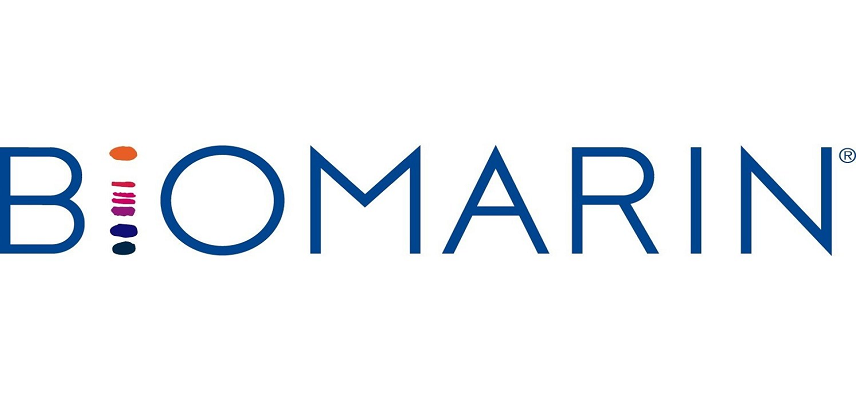BioMarin's Phase 3 PEGASUS Trial for Palynziq Meets Efficacy Goal
BioMarin Pharmaceutical Inc. announced that the phase 3 PEGASUS trial evaluating Palynziq (pegvaliase-pqpz) met its primary efficacy endpoint, demonstrating a statistically significant lowering in blood Phe levels in adolescents aged 12-17 with phenylketonuria (PKU) compared to diet alone. Safety results were consistent with the known profile of the medicine. Palynziq is the first and only enzyme therapy approved to treat adults with PKU.
Detailed results from the PEGASUS study will be presented at an upcoming medical meeting and submitted to global health authorities starting later this year to request a label expansion for Palynziq to include adolescents.
""For more than two decades, BioMarin has made strides for people with PKU – pioneering the first treatment, bringing a meaningful new option in Palynziq, and continuing to innovate as we advance our research pipeline. We are encouraged to see these positive data that build on that legacy and show how Palynziq can make an impact for adolescents as they begin their transition to adult living,"" said Greg Friberg, M.D., executive vice president and chief research & development officer at BioMarin. ""We look forward to sharing these data with the scientific community and to submitting them to global regulators with the goal of making Palynziq available for younger people living with PKU.""
PEGASUS is a phase 3 multi-center open-label randomized controlled study evaluating the safety and efficacy of Palynziq compared to diet alone in 55 adolescents aged 12-17 with phenylketonuria. The primary endpoints are change in blood Phe concentration and characterization of the safety profile in adolescents. Secondary endpoints include change in total dietary protein intake and pharmacokinetics.
The study is being conducted in two parts: the primary treatment phase ranging from weeks 1-73 (Part 1), and the extension phase (Part 2), which lasts for up to an additional 80 weeks of monitoring for the Palynziq arm and allows for crossover for those in the diet-only arm.
Palynziq substitutes the deficient phenylalanine hydroxylase (PAH) enzyme in PKU with a PEGylated version of the enzyme phenylalanine ammonia lyase to break down Phe. Palynziq is administered using a dosing regimen designed to facilitate tolerability; Palynziq safety profile consists primarily of immune-mediated responses, which can include anaphylaxis, for which robust risk management measures effective in clinical trials are in place.
Palynziq is approved to reduce blood Phe concentrations for adults in the US, for people 16 and older in the EU, Canada and Brazil, and for people 15 and older in Japan with PKU who have uncontrolled blood Phe concentrations greater than 600 micromol/L on existing management.
PKU, or phenylalanine hydroxylase (PAH) deficiency, is a genetic condition affecting approximately 70,000 people in the regions of the world where BioMarin operates. This enzyme is required for the metabolism of Phe, an essential amino acid found in most protein-containing foods. If functional enzyme is not present in sufficient quantities, Phe accumulates to abnormally high levels in the blood and becomes toxic to the brain, resulting in a variety of complications including severe intellectual disability, seizures, tremours, behavioural problems and psychiatric symptoms.
As a result of newborn screening efforts implemented in the 1960s and early 1970s, virtually all individuals with PKU born after this period in countries with newborn screening programs are diagnosed at birth and treatment is implemented soon after.
PKU can be managed with a severe Phe-restricted diet, which is supplemented by low-protein modified foods and Phe-free medical foods; however, it is difficult for most individuals to adhere to the lifelong strict diet to the extent needed to achieve adequate control of blood Phe levels. Dietary control of Phe in childhood can prevent major developmental neurological toxicities, but poor control of Phe in adolescence and adulthood is associated with a range of neurocognitive disabilities with significant functional impact.
Palynziq (pegvaliase-pqpz) is a phenylalanine (Phe)-metabolizing enzyme indicated to reduce blood Phe levels in adult patients with phenylketonuria who have uncontrolled blood Phe levels greater than 600 micromol/L on existing management.
BioMarin is a global biotechnology company dedicated to translating the promise of genetic discovery into medicines that make a profound impact on the life of each patient.

Optimize Your trial insights with Clival Database.
Are you exhausted from the uncertainty of trial insights pricing? Clival Database ensures the clarity in the midst of the global scenario for clinical trials to you.Clival Database is one of the best databases that offers an outstanding number of clinical trial data in terms of 50,000+ molecules and from primary regulatory markets as well as new entrants like Indian and Chinese markets.
With Clival, you get accurate positioning of historical sales data, patent database, company profiling, safety & efficacy, and prediction of launch of new innovative molecules helping you to align your research and driving down the cost.
To add value, we further break down our analytics for you so that improving your operational effectiveness; optimizing your clinical trials; and offering you accurate and high-quality data at lowest possible prices becomes possible.
Elevate your trial success rate with the cutting-edge insights from Clival database.
Check it out today and make more informed sourcing decisions! Learn More!







